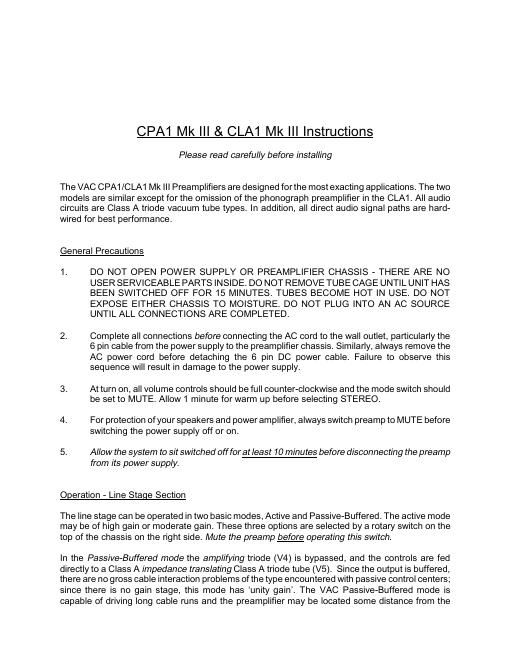Vac cpa 1 mk3 owners manual
This is the 5 pages manual for vac cpa 1 mk3 owners manual.
Read or download the pdf for free. If you want to contribute, please upload pdfs to audioservicemanuals.wetransfer.com.
Page: 1 / 5
